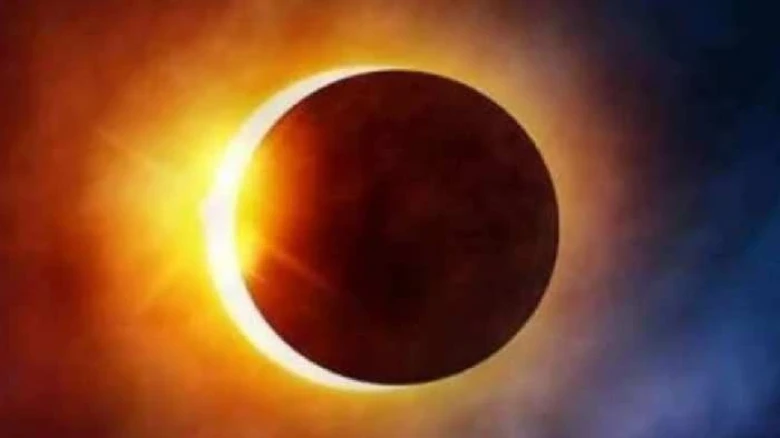Regional

A solar eclipse occurs when the moon passes between the sun and the earth, obstructing the sun’s...
Digital Desk: This time, countries around the world will witness a partial solar eclipse on October 25, right after the Diwali celebration. The eclipse will begin before sunset in the late afternoon and will be visible from most places.
A solar eclipse occurs when the moon passes between the sun and the earth, obstructing the sun’s light from reaching the earth. As a result, the moon casts a shadow on Earth, causing a solar eclipse. Viewing the eclipsed sun with the naked eye, even for a brief time, is not advised. Even if the moon obscures most of the sun, it will still cause permanent eye damage and blindness.
Let’s look at the dos and don’ts to keep you safe during the solar eclipse:
Do's
1. The safest and most recommended way to see the solar eclipse is with the help of proper filters such as solar viewing or eclipse glasses, telescopes, and others.
2. NASA recommends wearing eye protection before even glancing up at the sky during a solar eclipse.
3. Keep your headlights on throughout the eclipse.
Dont's
1. Wearing regular glasses instead of solar viewing or eclipse glasses is neither safe nor recommended.
2. Avoid taking pictures of the eclipse with your camera. There is always the risk that the Sun's intense rays will harm your eyes if you do not wear protective glasses.
3. If you aren’t going to be present to monitor your children, keep them away from eclipse viewing places.
During the maximum eclipse, the Moon will hide the Sun to the degree of 40 to 50 percent in the country's northwestern areas. In other regions of the country, the percentage coverage will be lower than the figures mentioned above. At the peak of the eclipse, the Moon will cover around 44% of the Sun in Delhi and 24% in Mumbai. The eclipse will last 1 hour and 13 minutes in Delhi and 1 hour and 19 minutes in Mumbai, from sunrise to sunset. In Chennai and Kolkata, the eclipse will last for 31 and 12 minutes, respectively. The maximum duration will be in Dwarka, Gujarat, which will last around 1 hour 45 minutes and will reach its maximum point around sunset at 5.30 PM. The western parts of India will enjoy an hour-long eclipse, but the eclipse will only be visible for a few minutes in the center and northeastern parts of the country.
Leave A Comment